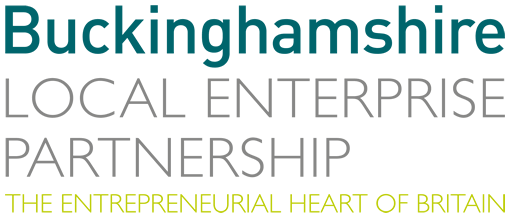Posted on:
17th February, 2021
LEPs are “an enabler for local government” says LEP Network Chair Mark Bretton
In an interview with the Local Government Chronicle, LEP Chair, Mark Bretton, underlined how business led LEPs have always been evolving and will continue to play their part in the right way in local economic growth. The interview is copied in full below.

16 FEBRUARY 2021 BY JESSICA HILL
LEP Network chair Mark Bretton tells LGC the body's members have addressed governance concerns raised in 2018 and must not be left out of future growth plans.
Perhaps surprisingly for the chair of the national body representing England’s 38 local enterprise partnerships, Mark Bretton has some sympathy with communities secretary Robert Jenrick’s description of the bodies as a “mixed bag”.
Mr Jenrick’s comments were based on the conclusions of the government’s 2018 LEP review and Mr Bretton, who alongside his national role with the LEP Network is chair of Hertfordshire LEP, says Mr Jenrick was “quite right in a way”.
“When Jenrick was Treasury minister at that time, they were a mixed bag,” he says.
Mr Jenrick made the comments to council leaders during the Local Government Association’s councillors’ forum last month, adding that LEPs “need reform”. But Mr Bretton argues LEPs have been constantly evolving.
Continual evolution
“We are not the LEPs that [former communities secretary] Eric Pickles created 10 years ago – nor should we be. And if we’re the same this time next year, we’re wrong again. That’s not how business functions.”
Mr Bretton, currently sitting out the lockdown in Spain, is an independent consultant and former managing director of professional services firm Accenture who helped to form the LEP Network and became its first chair in 2019, having been chair of Hertfordshire’s LEP for three years.
He says last year’s unpublished government performance review of LEPs marked 36 out of 38 “good or better”.
Those that did not meet the grade were London, which he says “always has some issues” because it has “strange accounting quirks around how you can allocate funds”, and Lancashire’s, which is “being rebuilt”.
At the councillors’ forum, Mr Jenrick also quashed speculation that LEPs would be used as a vehicle for the new pots that would replace EU funding, namely the UK shared prosperity fund and the £4bn levelling up fund, both of which he said would be “routed as far as we can” through councils.
Mr Bretton calls the comments “disappointing” not only for LEPs but “some local leaders”. But he understands “why Jenrick wants to make sure that local leadership are feeling empowered, particularly with local government elections coming up”.
“We don’t want to stop that. But what we do want to do is to continue to play our part in the right way, doing the right things.
“We’re actually an enabler for local government, not an impediment.”
LEPS were introduced by the coalition government as a looser, more locally driven replacement for the nine regional development agencies abolished in 2010. The 38 LEPS see themselves as partnerships between councils and local companies, driving productivity and job creation led by a business chair and board members who are leaders of local businesses and public bodies.
Since their introduction, their popularity in Whitehall has waxed and waned as ministers have come and gone. In 2020 then local government and regional growth minister Simon Clarke was keen to get LEPs involved in shaping recovery plans but his replacement Luke Hall has been less willing to engage with them.
LEPs were tasked in 2018 with promoting productivity in their areas by leading local industrial strategies. Last summer, Mr Bretton was pleased to see these being “dusted down and built into recovery plans” during roundtable sessions between lep businesses and ministers organised by Mr Clarke, with then business minister Nadhim Zahawi “talking about them a lot” during the sessions.
But since Mr Hall took over in September, the roundtables have not been renewed and local industrial strategies have once again “dropped off” the radar.
Mr Bretton believes that although some proposals in the strategies have been “flexed by the impact of the virus”, the “basic fundamentals in everybody’s economy are still there”.
“We have seen a bit of ingenuity. Buckinghamshire LEP, which has Pinewood [Studios], is trying to reinvigorate that at the same time as Heathrow is shedding labour, so they have retrained plumbers and fitters to go into the creative industry.”
Funding worries
However, there is concern about the future of LEP funding, with the £1.5bn a year local growth fund channelled through LEPs and combined authorities set to expire in March. The levelling up fund, worth an average of £1.3bn a year over the next four years, is being billed as its replacement but is expected to be administered by councils which will have to compete for slices of funding worth up to just £20m.
This follows the current trend for government growth funding to seek bids for individual projects, rather than allocate it to be spent on locally determined strategic priorities, as seen with the £1.6bn towns fund.
While LEP members had some representation on the boards that were formed to work up towns fund bids, decisions did not go to LEP boards and Mr Bretton claims “very strange decisions” were made in some areas.
“It was a right patchwork. I saw examples of bids where I thought ‘how did that get through?’ There is learning to be had from that.”
Mr Bretton warns that if the government leaves leps out of new funding schemes it risks losing the talents of some of LEPs’ 300-odd members.
“You’ve got some very talented business folk. You will lose that skill because if they don’t see they’re getting value and respect from [their roles], it’s very hard to keep them on board.”
Mr Bretton claims LEPs have changed their focus over the past five years from “bigger programmes, bigger infrastructure” with the “the sweet spot” now “skills programmes and business support”.
“[It is] not necessary for LEPs to be running infrastructure projects for bridges and roundabouts, that would be for local government. But are we making sure we’ve got the right infrastructure built? LEPs have a point of view here.”
This interview originally appeared in the Local Government Chronicle on 16 February – the original article can be accessed here.




































 Back
Back
 View cookie policy
View cookie policy